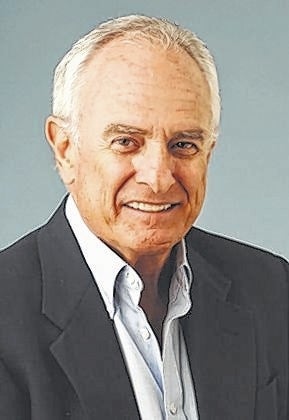Columnist: Oil and OU football
Published 12:00 am Sunday, December 27, 2015

MARIETTA, Okla. — This is a town of 2,626 just north of the Red River which separates the states of Oklahoma and Texas. Early settlers here were attracted to the fertile land which supported the farming and cattle-raising interests of those who came this way.
I have stopped here for fuel and a Diet Coke on the way to Norman, the home of the University of Oklahoma. Much to my amusement there were two rows of Georgia caps at a merchandise rack which mostly featured Oklahoma and Oklahoma State colors.
There was one row of Alabama caps and only one of the Texas Longhorns. Doesn’t necessarily mean anything earth shaking, but it was, nonetheless, interesting that Bulldog colors are popular out here in this flat country where a sweet potato hill would be considered a mountain.
Oklahoma remains a rural state, the 46th state admitted to the union in 1907, just ahead of New Mexico and Arizona. With a friend, Carl Mayhall, a native Oklahoman, we are driving from Dallas to see friends in Norman, and I am enjoying the ride, the landscape and the everyday towns along Interstate 35.
All the while, I can hear the sounds of Richard Rodgers and Oscar Hammerstein humming loud and clear above the hum of the Interstate traffic:
“OOOOK-lahoma, where the wind comes sweepin’ down the plain,
“And the waving’ wheat can sure smell sweet,
“When the wind comes right behind the rain,
“OOOOK-lahoma, ev’ry night my honey lamb and I,
“Sit alone and talk and watch a hawk, making lacy circles in the sky.”
The music of Rodgers and Hammerstein was so classic and telling, reaching right into your soul. I can only imagine what the Broadway musical, Oklahoma, did to the souls of the many poor in this state of contrasts.
The musical, which opened in March 1943, was a smash hit, setting records for longevity. It must have lifted the spirits of Americans who were stricken with the drudgery and fears of World War II, wondering if it would ever end.
There is wealth in Oklahoma — in abundance if you have anything to do with oil, but for the most part this for so long was a state of have-nots: Farmers, Indians — those who worked the land. It wasn’t so good for the farmers soon after statehood. The dust storms were like salt in the wounds and you know how the Indians got here. They came with nothing and had little means of making a living.
Can you imagine what the Indians thought when the U.S. government allowed non-residents to participate in a land rush at noon April 22, 1889? Some settlers had already moved into Indian Territory and staked claims. They were known as “Sooners.”
The Indians were forced west, giving up land in the Southeastern U.S. They were given land here mainly because it was considered worthless. It didn’t take long for settlers to realize it was better land than originally thought. And when it comes to land, nobody was greedier than those who staked out claims in the early days of this country. Furthermore, taking land from the Indians wasn’t anything to fuss about.
The name Oklahoma comes from the Choctaw words, “okla” and “humma,” which means red people.
That is why the state takes pride in its football teams, namely the University of Oklahoma. Oklahoma State has a significant following but Oklahoma is known as “Big Red,” and they are the dominant football school, the Sooners having the most success over the years with seven national championships.
“Oil and OU football is about all we have to brag about in the little, rural state,” Mayhall said as we are driving into Norman. “That is why we appreciate men like Bud Wilkinson, Barry Switzer and Bob Stoops. They won national championships and gave us something to stick out our chests.”
Every state has an interesting history in America, the beautiful, and one can never get enough of exploring the 50 states. I never think of Oklahoma without hearing the sounds of the musical hit which blew the country away like the wind sweepin’ down the plains.
Then I wonder, what do the Indians think!



